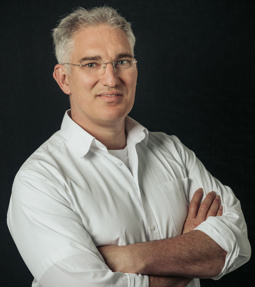As it becomes increasingly possible to unlock the molecular data of cells and tissues, this also creates a new challenge. How do you find the right information for research from this enormous amount of data?
The scientific program Medical Delta AI for Computational Life Sciences uses AI techniques to unlock biomedical data, discover new drug candidates, identify unique cell abnormalities or correlations, and find useful information for research. This opens new doors for scientific research into the human body and, in particular, the development and function of new medications.
The term 'Computational Life Sciences' is a combination of computer science and life sciences. Using AI techniques, Computational Life Sciences helps to better understand biological mechanisms and make predictions about interactions between molecules and cells, as well as interactions with medications. It assists in more targeted searches for molecules and genes of interest for specific biological research, sharpens hypotheses, and improves the ability to predict in advance what drugs should consist of to work effectively. This opens new doors for drug development, making it faster, more targeted, and more effective.
Medical Delta professor and Scientific Leader Prof. Dr. Ir. Boudewijn Lelieveldt compares it to launching a new space telescope. "When it suddenly becomes possible to see much further than ever thought possible, an astronomer needs to carefully decide where to point the telescope to avoid getting lost in infinite possibilities. With the help of AI techniques, Computational Life Sciences assists in specifically targeting the molecules and genes that are of interest for particular biological research and drug development."
In the program, leading scientists in bioinformatics, drug development, AI, and computer science collaborate with pharmaceutical companies and clinicians on research projects. In addition to the general development and application of Computational Life Sciences with AI techniques, the program focuses on two research areas: antibiotic resistance in tuberculosis and targeted medication for brain disorders.
Antibiotic resistance of tuberculosis
Tuberculosis is one of the deadliest infectious diseases in the world. Each year, ten million people contract the disease, with 1.5 million people dying from it (source: RIVM). A major problem in combating this disease is antibiotic resistance. Medical Delta AI for Computational Life Sciences aims to support research into antibiotic resistance through computer modeling and, among other things, using algorithms to determine the effects of bacterial mutations. By better understanding the mechanism of antibiotic resistance, researchers hope to more specifically target the aspects that can disrupt resistance and thus develop better drug candidates.
Targeted medication for brain disorders
Collaboration
Scientists from Leiden University, LUMC, Erasmus University, and TU Delft in the fields of bioinformatics, drug development, AI, and Computational Life Sciences are collaborating in this program with clinicians and pharmaceutical companies. Scientists from Erasmus MC are also joining the effort.






